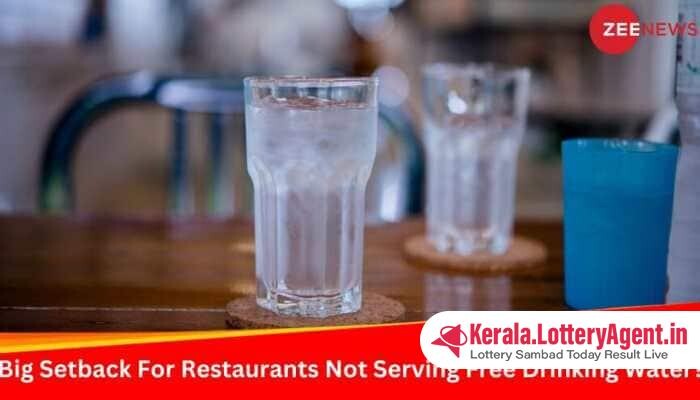
A resurgence in the practice of offering only packaged water in many restaurants and hotels has recently swept through New Delhi, with visitors frequently encountering the trend and incurring additional costs for their hydration needs. This shift in service has sparked much conversation in the metropolitan circles.
Responding to this backdrop is a pivotal ruling from the District Consumer Disputes Redressal Commission-III in Hyderabad. The Commission made headlines when it ruled against a popular restaurant in Jubilee Hills, instructing them to pay a customer Rs 5,000 in compensation for their failure to provide free drinking water and for imposing service charges deemed unjust. (Also Read: Zomato Bag, Swiggy Shirt, Zypp Helmet: Can You Guess From Which Company The Delivery Man Is?)
The case that drew attention to this matter involved a distressing incident experienced by a Secunderabad resident at the ITLU restaurant located in the CBI colony. The customer, who has an allergy to plastic, requested regular water without charge; however, the restaurant’s staff denied this request. Consequently, the diner was forced to purchase a bottle of the restaurant’s own brand of water, at an excessive price of Rs 50 for 500-ml. (Also Read: ‘You Give More Money To Govt Than Spend On Yourself’: Social Media Post On Income Tax Concerns Goes Viral)
Furthermore, the ITLU restaurant included an additional Rs 31.50 as a service charge on a bill that came to Rs 630 for two dishes and the aforementioned water bottle. To exacerbate matters, the bill also included a 5 percent CGST and SGST, which applied not only to the water bottle but also to the service charge, inflating the total to Rs 695.
The final verdict from the Commission mandated the restaurant to issue a refund of the service charge along with the GST, amounting to Rs 33. Beyond this reimbursement, the ruling required the restaurant to compensate the customer with Rs 5,000 and to cover legal fees of Rs 1,000 within a span of 45 days from the judgment on March 22.
The instance beams a spotlight on a significant government mandate from the Telangana government’s Municipal Administration & Urban Development (MA&UD) department. Implemented in 2023, the decree demands that all hotels, restaurants, and food outlets within the Greater Hyderabad Municipal Corporation (GHMC) provide patrons with free purified water, while also capping the price for bottled water at the Maximum Retail Price (MRP). The policy is a stride toward ensuring equitable access to safe and affordable drinking water for customers across economic backgrounds.
This decision exemplifies how local government mandates can intersect with consumer rights, seeking to protect customers from exploitative practices in the service industry. As the concept of human rights begins to encompass basic amenities like access to drinking water, regulatory bodies play an increasing role in defending these rights.
Such rulings not only serve as public interest victories but they also send a robust message to the hospitality industry at large: businesses must adhere to regulations and fairness in their service, especially with respect to essential resources such as water. The Hyderabad ruling acts as a reminder of the importance of consumer rights, the necessity of transparency in service charges, and the obligations of service providers towards their patrons.
As a direct consequence of this case, restaurants in the vicinity and potentially across the nation are likely to reassess their approach to customer service in relation to providing drinking water and applying additional charges. This turn of events is a testament to the influence of vigilant consumer rights platforms and the judicial system in safeguarding against infringement of government guidelines and customer exploitation. It is a breakthrough that underscores the criticality of upholding fair trade practices in the hospitality sector for the greater public good.












